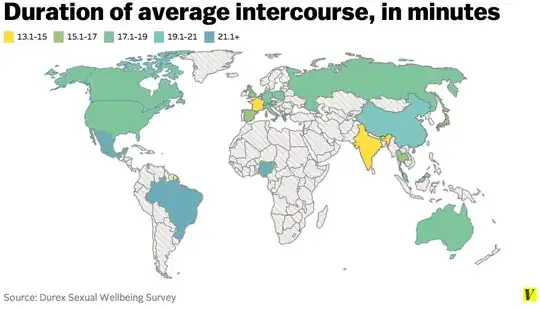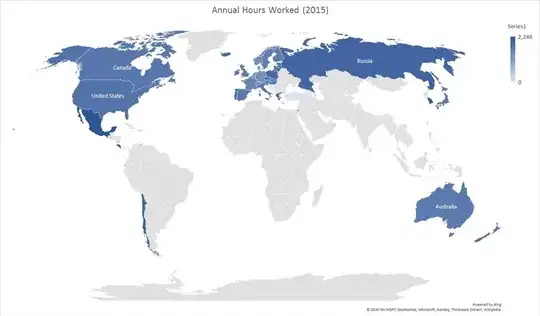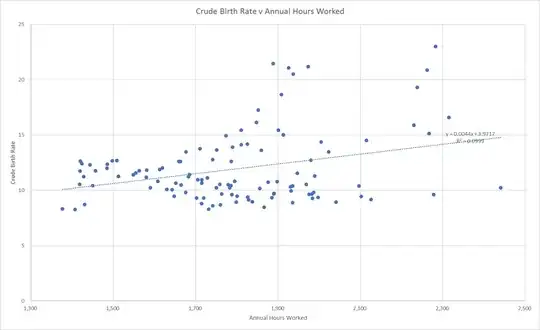Disclaimer: This is difficult to actually prove without performing rather intrusive research into the lives of Spanish couples.
For part 1: No, they don't work longer hours (source). They do, however, finish work later which supports part of the claim your source makes:
Experts say long working hours and a culture of eating late at night and going to bed after midnight are partly to blame for the nation’s sex famine
For point 2 it was difficult to say precisely but I worked off two hypothesis:
- If this changed their sexual habits Spanish couples having less time in the evening would not only change the amount of sex but also the time put aside for it.
- In areas other than time Spanish couples are not particularly different to the rest of Europe.
So if I could find something to support lower satisfaction it might in turn support them having less sex. (This is, however, subject to the hypothesis being true).
I found some results of research done by durex. In there we had a couple of results that were important.
Firstly we see that the average time for intercourse is roughly similar to other European countries (France aside). So Spanish couples aren't taking less time in having sex.

However we see that the satisfaction in women is markedly different:

Spain standing out within Europe as giving less attention to women for them achieve orgasm. Given that women take longer to orgasm we could interpret this as that, on average, less time was put aside for foreplay.
As you can see I've proven nothing: however from another perspective to the research provided the hypothesis was supported.
Also I couldn't find the numbers used to provide these graphs - those would probably provide a better insight into the differences.



